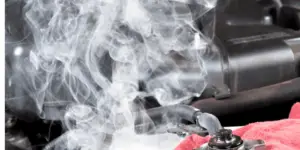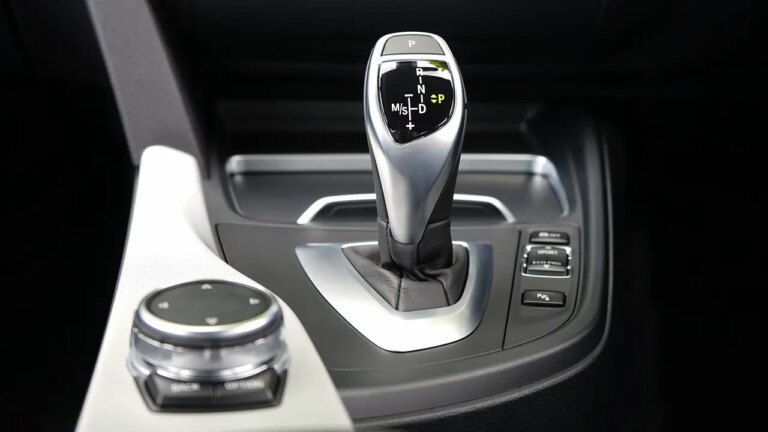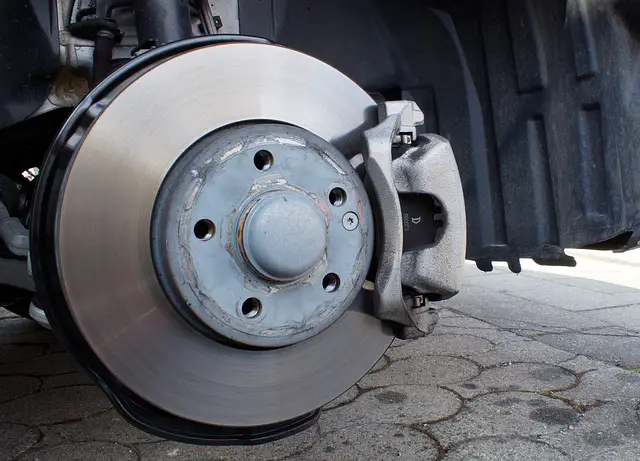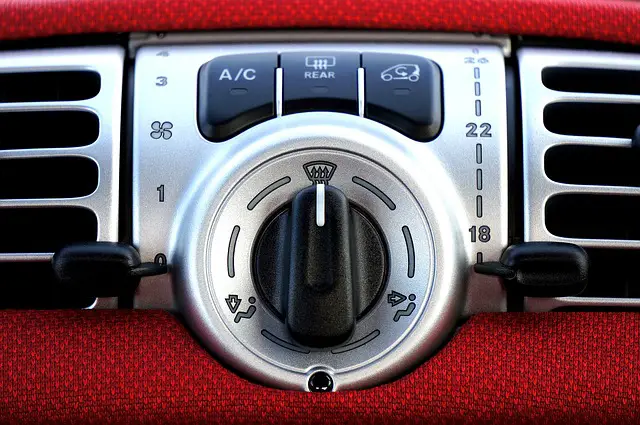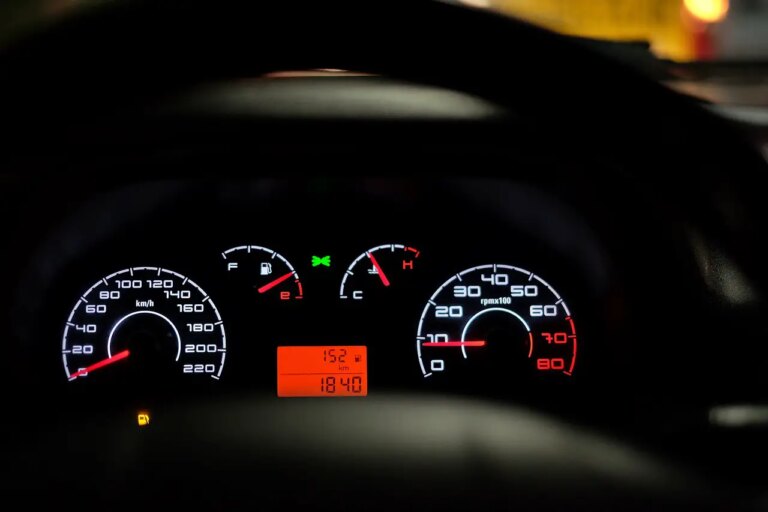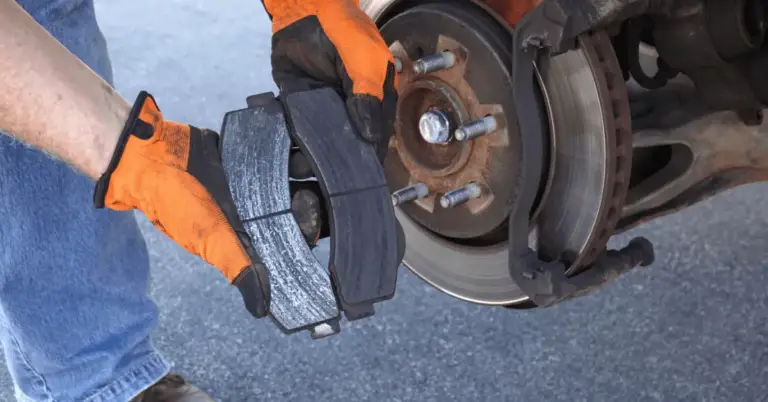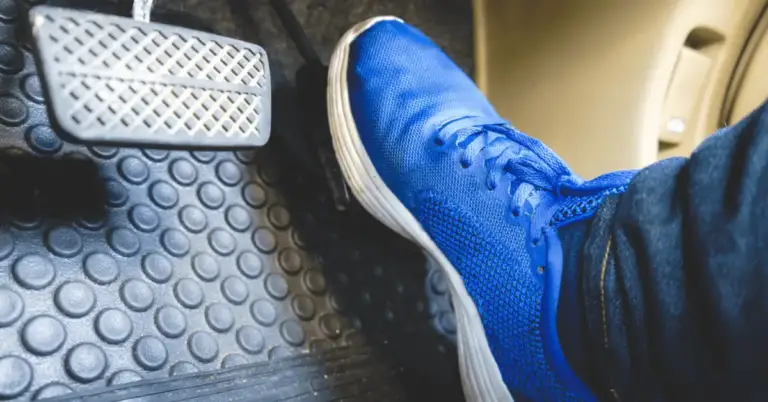A whistling noise can cost be a cheap fix or a costly one. Here we explore ALL the possible reasons your car is whistling.
This article will explore why your car whistles, the causes, the fixes, and the costs involved.
Briefly, though, the reasons are many, including
- Turbo whistling
- Cracked hoses
- Bad Bearing Accessory Pulley
- Cracked window seals
- Bad brakes
- Dirty fuel injectors
- Radiator cap
- Power steering system leak
- Worn Serpentine belt
- Air con gas leak
- Air filter
1. Turbo Whistle When Car Accelerates
If your car has a turbo, then read this section. If not, head down to number 2.
A Turbo whistle is the sound that the turbocharger compressor makes when it speeds up.
Also known as “spooling up,” this is how the turbocharger kicks in at the boost threshold as you accelerate through the gears.
All Turbochargers make a whistling noise, but if you notice any changes, it could indicate various problems that warrant further investigation. The turbo will often start sooner when you accelerate, remain working after you’ve finished, and are at cruising speed.
Turbo noise could be caused by:
- Check for a boost/air/vacuum leak in your engine intake or intercooler
- Damage to the compressor wheel
- Cracked hoses
- Overboosting where the turbo is working harder or instigating sooner than it needs to.
I’m afraid if this is the noise you hear, it is time to book an inspection with a mechanic.
Turbos are expensive to replace but can sometimes be repaired if diagnosed and repaired soon after being discovered. A new turbo can cost from $1500 to $4000. In older cars, the high cost can make taking the car to the junkyard a better financial choice.
The louder the whistle or “woo” sound, the more likely the turbo will need to be repaired or replaced. A low whistle noise when you step on the accelerator is normal as long as it stops once you get up to the cruise speed.
In essence, the turbo is to give you the boost to get you to speed quickly and should not deploy once the accelerator pedal has been eased off.
2. Cracked Hoses
A vacuum leak most commonly causes this whistle. The constant circulation of coolant and air through your car’s engine, often at high temperatures, can crack hoses and cause them to break their vacuum seal.
These holes could allow air to escape, causing the whistling sound. It’s unlikely you’ll see air escaping, but you might see water or mist if the leak is in the coolant system.
An air intake manifold is a favorite place where are often escapes. You can find this close to the air filter, which is the engine entrance and manifold.
Often using soapy water will show signs of bubbles on hoses. Often they can be sealed cheaply, but replacements are very cheap, as most are rubber. They don’t have an infinite shelf life, as rubber will perish eventually.
3. Car Window Seals
A nice inexpensive fix. As cars get older, their perishable components start to wear. A whistling noise you hear could be coming from a poorly sealed window allowing air to whistle through into your cabin.
If it’s coming from a window you can’t get close to, then get a friend to sit close to that window to confirm this is the issue. It’ll save you having to get a mechanic to investigate.
You can even replace these seals and save on a mechanic’s cost.
4. Power Steering System
This whistle is most noticeable when the steering wheel is turned to one side. The hydraulic power steering system requires a special fluid.
A whistling sound is typical when this fluid is low, or the pump is about to fail. If the whistle is worse the more you turn the wheel, it’s likely power steering related. Power steering parts can be expensive, so hopefully, it’s because of low fluid.
Power steering pumps can cost hundreds of dollars, but many aftermarket parts are available.
Low power steering fluid will also cause the car to judder when you turn the wheel fully one way or the other.
5. Air Conditioning Whistling Sound
Normally described as a hissing noise, a whistling noise from the air con unit can also occur, especially in the early stages of an air-con refrigerant leak.
This is because the refrigerant is under greater pressure in the early leak stages, but as more escapes, it becomes less forced and becomes a hiss rather than a whistle noise.
One sure way to investigate is to turn the air-con on to full cold and see how long it takes to get the cabin freezing inside.
If you notice that since you’ve had the whistle, the air-con is less efficient than before, this is a telltale sign that the whistling noise is air-conditioning related.
It may be as simple and inexpensive as a leaf stuck in one of the air intake hoses. As the airbrushes past it, it causes the whistling noise you hear.
Aircon systems do make other weird noises too.
However, it could be that you probably have a leak in the aircon hoses.
A mechanic will check for leaks by using a dye to see where gas is escaping from.
6. Bearing On Accessory Pulley
Your car’s accessory pulley holds the serpentine belt into place. The serpentine belt spins at thousands of RPM, and the bearings inside often fail.
A good way of diagnosing whether the whistle could be connected to the accessory and pulley is to rev the engine. Doing this will cause the serpentine belt to spin more quickly because the crankshaft will spin more quickly on the engine.
The accessory pulley will be forced to take more stress because of the extra speed of the serpentine belt and will whistle a bit louder.
Your car is likely to have at least two accessory pulleys.
Older cars have one, but because the serpentine belt now powers power steering, water pump, air conditioning compressor, and much more, the belts are longer and require more tensioners and pulleys.
7. Very Badly Worn Brakes
A little left of center this one. Because sometimes whistles can be described as squeals, I have included them.
Your brakes would have to be in really poor shape for this to be the cause. Any screeching, squealing, or whistling noise from the brake area will be caused by friction of worn rotors and pads.
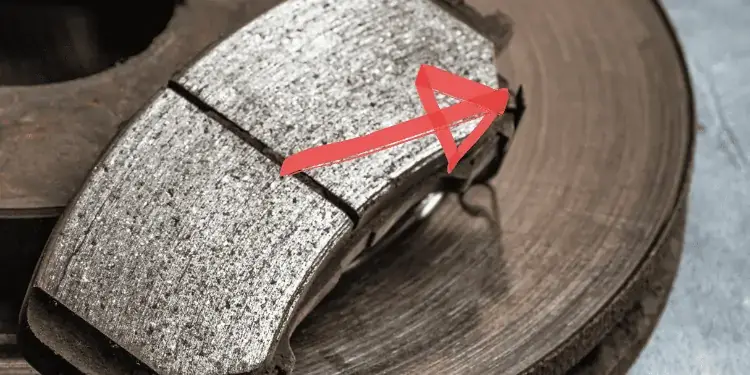
Remember that you may have this noise from your break area even if you are not pressing down on the brake pedal. Often in badly serviced brakes, the caliper will get stuck and force the pads onto the rotor.
This will cause the rotor to become extremely worn and the pads too quickly lose their braking compound and force the brake wear indicator on the pad to contact the rotor.
8. Radiator Cap
You may not know this, but radiator caps have a pressure-release valve incorporated. They are designed as a safety feature to ensure that if the pressure within the coolant system becomes too high, there is a way of relieving the pressure.
Usually, there will be other signs that your car is running too hot. The engine warning light may indicate the engine is at risk of overheating.
You may see steam escaping some of the hoses that take away the very hot steam and water from the engine to the radiator.
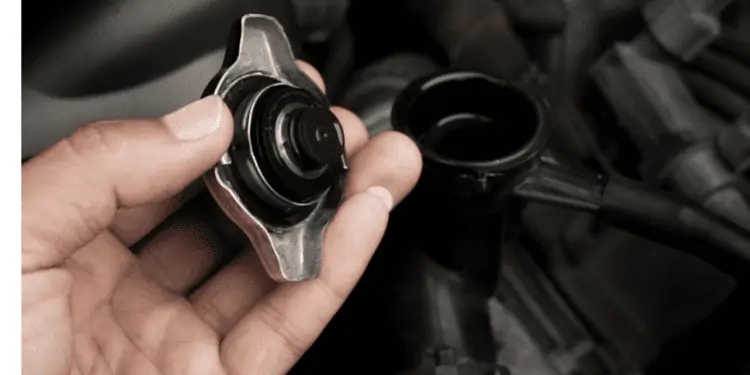
When steam does escape from the radiator cap, it can make a noise like a kettle on a ring and whistle.
A whistling sound will be accompanied by steam coming up through the radiator and out of the cap at the same time.
Never open the radiator cap when you hear a whistling noise, as it is still expunging the pressure and steam from the system. If you open it, you are likely to get burns either by the steam or by hot water escaping.
Still got pressure in the coolant system when the car is cold? It might be worth having a read of this article. Coolant Still Under Pressure When Cold
9. Clogged Fuel Injectors
This is a really rare one, but did you know that sometimes clogged fuel filters can make a whistling noise?
As I say, this is very rare, but it does happen.
It will be accompanied by other signs of clogged fuel filters, namely poor performance, rough idle fuel usage, and poor acceleration.
If you also have the whistling noise and any of these symptoms mentioned, it could be the fuel injector or fuel injectors making this whistling noise.
10. Worn or Wet Serpentine Belt
A nice cheap, inexpensive fix for this one. This happens especially on damp mornings when you first start the car or if you go through a large puddle when driving.
Moisture can accumulate on the serpentine belt and then slips as it speeds up and races through the pulleys and tensioners of the hood.
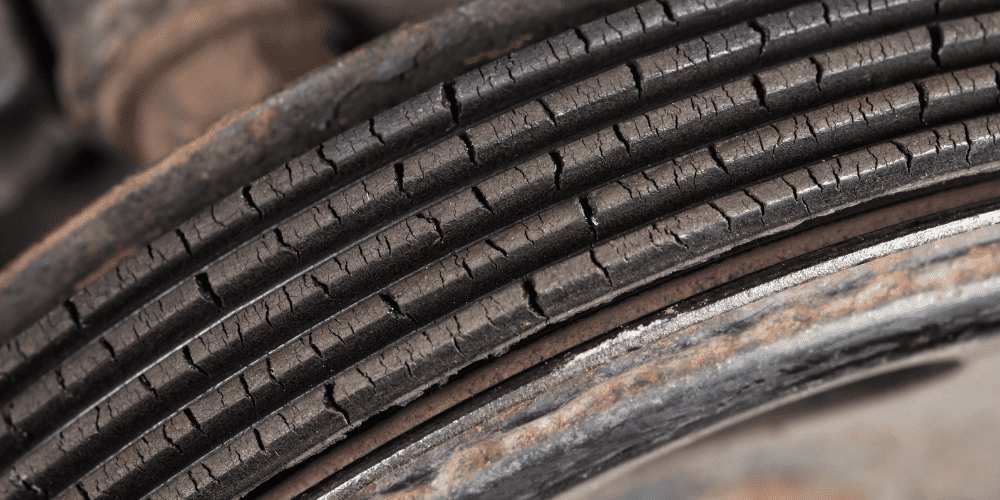
It won’t take long for the moisture to evaporate, and the whistling noise should go away. However, if you still suspect the serpentine belt of causing the whistling noise, it could be that it is wearing in places and not running smoothly around the engine.
Any serpentine belt noise is usually described as a squeal but has been described by some as a whistle, so it’s been included in the list.
11. Air Filter Whistling
This one is quite unusual, but if you’ve recently replaced the air filter or had a tune-up done on your car, quickly ensure that the air filter casing is properly screwed or clips in place.
Any looseness or gaps at high speed will make a whistling noise as the air races across the plastic casing containing the filter.
My Car is Whistling When Accelerating?
A vacuum leak is the main culprit when it comes to whistling sounds when you put the pedal to the metal. This is because the engine needs more air from the air intake manifold, and any leak or gap in the hose would cause an increase in whistling as more air is demanded.
To diagnose this, you can also rev the engine while parked and listen for a whistling noise. It’s the same principle as driving and accelerating. The engine is working harder and therefore the whistle will be louder.
Car Making a Whistling Noise At Idle?
Once again, a vacuum leak is the most likely cause of this. A whistling noise will never go away whether you are driving, accelerating, or at idle, but you may hear it easier when you are at idle as there is less other noise to distract you.
Often read for a better insight is our popular article: Is Your Car Whistling At Idle? Help and Advice
A whistling noise could also be caused by a worn serpentine belt, especially if you have just turned the car on in the morning. Moisture also accumulates on the serpentine belt, and if the noise soon abates when the car starts to warm, this could be because the moisture has evaporated off the belt.
A slipping alternator or serpentine belt is often described as squealing, but some people describe it as whistling when the noise isn’t quite as pronounced.
What RPM Should My Car Idle At? – And Why It Matters
Whistling Turning the Car Off?
If you have a whistling noise as you turn the car, go to the front of the car near the grill and see if you can hear it more loudly there. Also, keep an eye on your temperature gauge as a whistling noise as the car is turned off is usually because the radiator cap is leaking steam.
This is not just occurring when you turn the engine off, but it is the most likely time you will be able to hear it, as the hissing or whistling noise is quite faint, especially when the engine is running.
Whistling When Braking?
Apart from very worn rotors and pads, the main reason you hear a whistling noise when braking is an air leak in the brake booster function.
These noises are usually accompanied by a stiff brake pedal or the brake pedal being in a high position.
You may also notice that the car stalls when you press the brake pedal as air bypasses the seal.
If you suspect your brakes are whistling, this article goes into a lot more detail: Causes Of A Hissing Noise When Braking [SOLVED]
Car Whistling Noise When Cold?
Slipping serpentine belts make a squealing or whistling noise when it slips.
This usually happens on cold, damp mornings when dew for moisture collects on the belt but soon passes when the moisture evaporates as the car warms up.
Most cars now have an air injection pump which helps with emissions and can often be noisy and whistle when the car first starts in the morning.
Its job is to push air into the exhaust system just behind the exhaust manifold and burn off any excess fuel therefore lowering fuel consumption and increasing economy.
Car Whistling Noise When Turning?
The power steering pump or low power steering fluid is the most likely reason your car whistles when you turn the steering wheel.
Another possibility is if you had work done recently in the power steering system or on your brake area, air might have entered the power steering fluid and caused it to not work to its full capacity.
The noise you’ll be hearing will be the air struggling to be compressed in the power system closed system.
Car Shuts Off When Turning – [TROUBLESHOOTER GUIDE]
In Conclusion
The most likely causes of a whistling noise are cracked hoses and vacuum leaks, a bad accessory pulley bearing, a worn or wet serpentine belt, a turbo whistle, a radiator cap allowing steam through, or power steering issues.
Less likely causes are windshield seals have gone bad, dirty fuel injectors, air con system leaks, bad brakes, or air filter casing not being secure.
Discover all in our Why Is My Car Squeaking article.
A whining noise can be a more costly fix. Find out why here: Car Making a Whining Noise? SOLVED: Causes, Fixes, and Costs
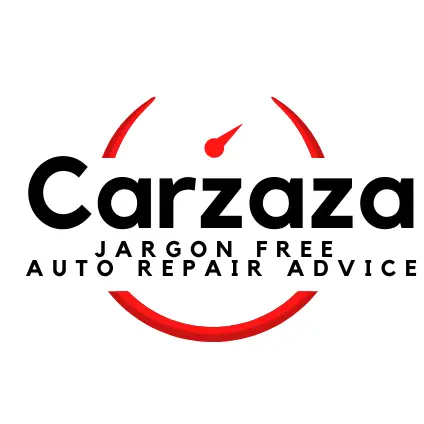

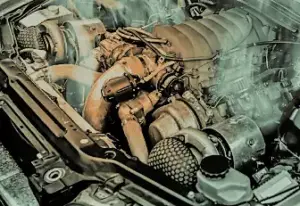
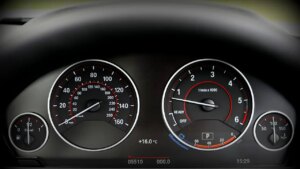

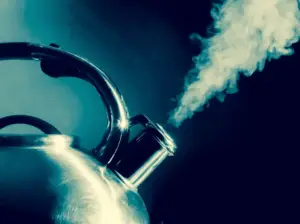
![Coolant Still Under Pressure When Cold [FIXED] radiator-cap](https://carzaza.com/wp-content/uploads/2024/02/radiator-cap-300x150.png)
